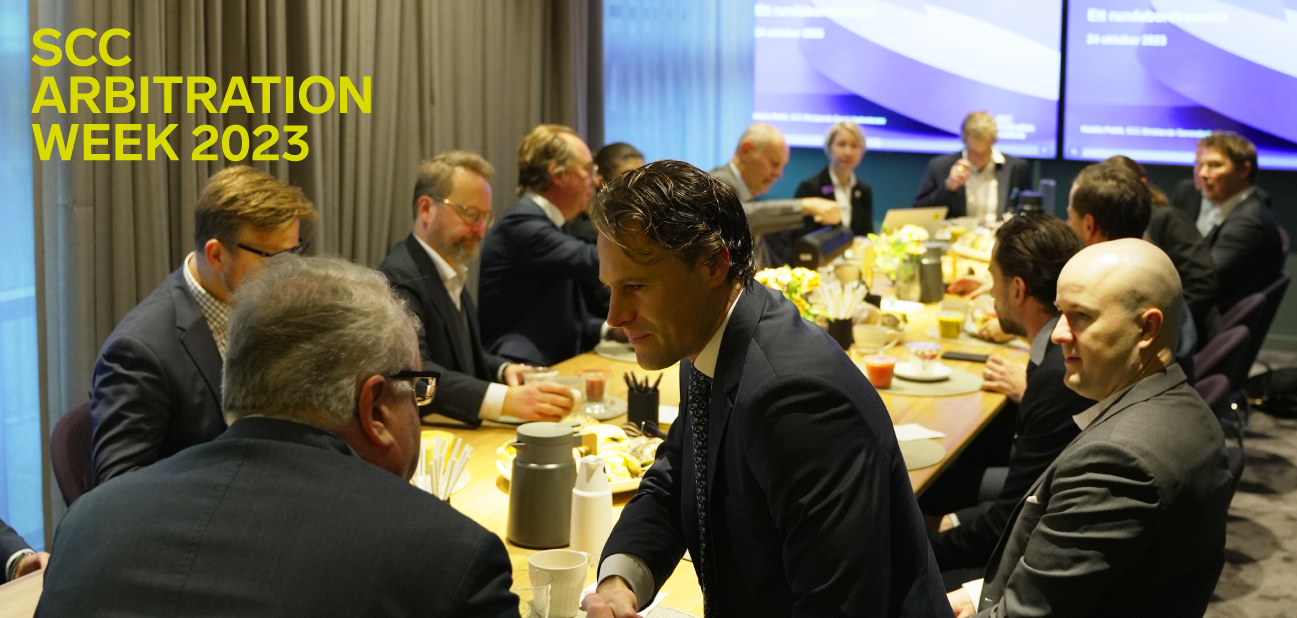Insights Shed Light on Construction Dispute Resolution
In a roundtable discussion, key stakeholders met to discuss the trends in the resolutions of construction disputes. We extend our sincere gratitude to all participants for their invaluable contributions to this enlightening and informative discourse.
Published 2023-10-26

Caroline Falconer, Secretary General at the SCC Arbitration Institute, states: “The roundtable format is wonderful for gaining feedback and insights from the users of our services. We always welcome feedback and highly value the industry's insights."
A comparative analysis of available options
Anders Ingvarson, partner at Mannheimer Swartling, compared the various methods available for resolving disputes in construction projects. Participants gained a deeper understanding of the strengths and limitations of each approach within the dispute resolution landscape.
"The distinct advantages of arbitration at the SCC are its speed and the presence of a clear set of rules," emphasized Anders Ingvarson. “For Sweden to have such a highly renowned arbitration institute as the SCC is a great advantage for Swedish companies.”
Reflecting on data from construction disputes
During our roundtable discussion, Natalia Petrik, SCC Deputy Secretary General delved into the findings of the SCC’s review of construction disputes resolved in Sweden from 2017 to 2022. The discussion was based on the SCC report, drawing on data from 60 disputes, including 35 ad hoc proceedings and 25 proceedings at the SCC. The review affirmed previously identified trends: it was evident that, in general, resolving disputes in an ad hoc arbitration was both more time-consuming and expensive compared to proceedings at the SCC Arbitration Institute.
Insights into complex disputes
Anders Reldén, partner at White & Case, shared his experience in navigating the complexities of dispute resolution within construction projects. His insights illuminated the strategies employed to effectively resolve intricate construction disputes.
"I believe that the key drivers of costs in extensive arbitration proceedings is time as a longer arbitration will result in higher expenses for legal representation. The increasing costs associated with legal representation will, in the long run, make parties more cautious about initiating legal proceedings, both in court litigation and in arbitration. In this context, it is my firm belief that it is the responsibility of lawyers working with disputes to not unnecessarily inflate the disputes and thereby increase the costs," stated Anders Reldén.
Some conclusions
During the discussion, it was clear that the participants were discontented with the trend of disputes becoming larger and taking longer. The high cost of legal representation made even large companies think twice about initiating arbitration or court litigation. The conclusion reached was that companies involved in construction projects need quicker dispute resolution methods, which should be available for less complex disputes as well. The discussion covered options such as dispute resolution boards, mediation at the SCC, and SCC Express (dispute resolution in three weeks).